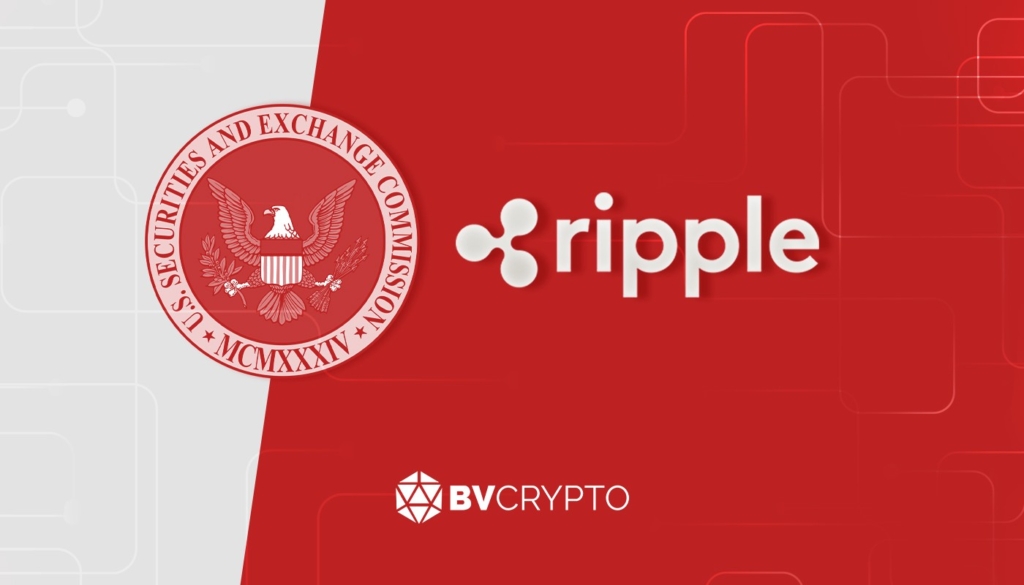
Ripple and SEC lawsuit
Every lawsuit has a story. Some lawsuits, on the other hand, impact a much larger audience or sector than just the parties involved. The stories and results of these lawsuits are a turning point. Perhaps the most famous of such lawsuits in the cryptocurrency sector was the lawsuits concluded at the beginning of 2021 regarding whether Tether’s reserves are sufficient or not. The lawsuit involving Ripple company, which is the fourth largest cryptocurrency in terms of market size, is linked to XRP, and the U.S. financial regulator SEC, is seen as a candidate to be a turning point for the industry.
The classification and regulation of cryptocurrencies in the United States, the world’s largest economy, could take a new turn because of the XRP lawsuit. Hence, the lawsuit is significant for the categorization of not only XRP but also all cryptocurrencies care of XRP. With the advent of cryptocurrencies, it is apparent that many categorization applications, such as the one used by official bodies Howey Test, remain outdated. For this reason, we can say that innovations can be made in similar traditional methods after the lawsuit.
Ripple, Ripple executives Garlinghouse and Larsen, and Ripple investors are on the advocacy side of the lawsuit, while the SEC is the plaintiff. In this essay, you will find brief commentary on the developments in the lawsuit from the very beginning to the very end and the effects of these developments.
Before moving on to the developments in the lawsuit, it will be useful to provide some background information about XRP. XRP is a digital asset that aims to make cross-border money transfers made by cryptocurrencies over the blockchain swiftly. Unlike decentralized cryptocurrencies that start with Bitcoin, XRP is often criticized for being completely under the control of Ripple. Therefore, it can be said that an anti-XRP community has been formed, as well. The operation and methods of XRP can be questioned, however, the exact point is that XRP transfers money within seconds from the day it is established. Despite the criticism, it can be argued that XRP serves its aim in this regard.
As can be seen in the chart below, the price of XRP has risen remarkably since the beginning of March 2021, following successive court rulings in Ripple’s favour.
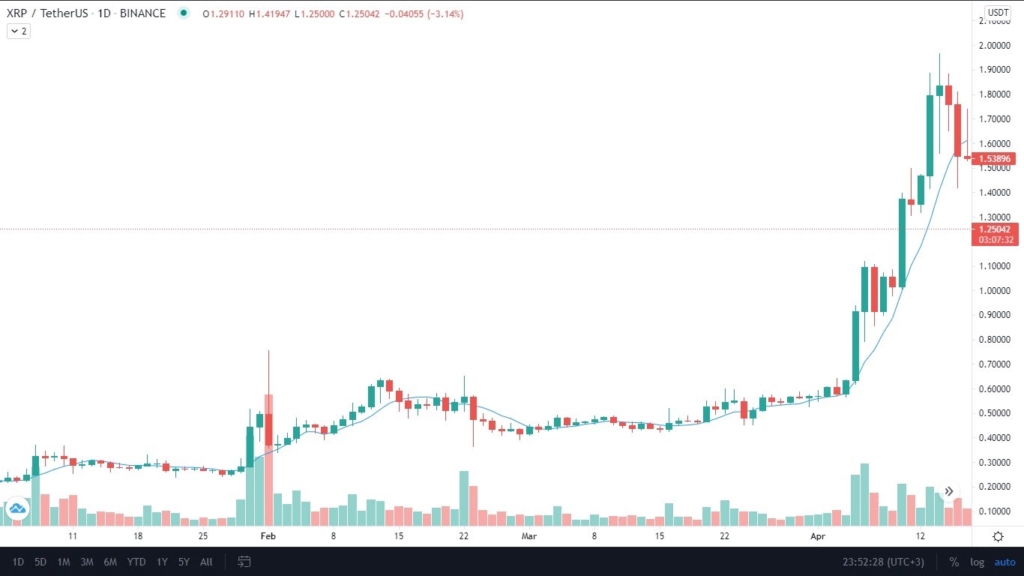
December 22, 2020
The SEC filed a lawsuit accusing Ripple and Ripple executives Garlinghouse and Larsen due to carrying out unregistered sales of XRP between 2013 and 2015. SEC, which defines XRP as a security, not a currency, claimed that Ripple sold 14.6 billion XRP between 2013 and 2015, generating $1.3 billion in unlawful profit, and Garlinghouse and Larsen earned $600 million from personal XRP sales.
The SEC’s lawsuit is based on Ripple’s direct marketing of XRP to investors without informing the SEC, as well as the fact that Ripple continues to sell XRP despite the lawyers’ warning in 2012 that Ripple may be categorized as a security.
The way XRP is marketed to investors who bought XRP between 2013 and 2015 and the investors’ motivation when purchasing XRP is significant since the SEC supports or does not support the mainstay in the lawsuit. After all, if Ripple marketed XRP as an investment tool that is expected to be valued in the future, XRP can be considered an investment contract and result in SEC being justified.
The Ripple company’s strongest argument is that in 2019, an unnamed US-based cryptocurrency exchange asked from SEC for its observation before listing XRP, however SEC suggesting to do their own research without commenting on the XRP’s situation. While this proves the SEC is aware of XRP and receives a search request, it is presented as a strong evidence that the SEC did not do its duty and is used by Ripple as an argument that this lawsuit is filed for political reasons. Another point that reinforces Ripple’s trump is the SEC’s comment that Bitcoin and Ethereum are not securities. Because XRP is classified similarly to Bitcoin and Ethereum in many countries outside of the USA. SEC’s making such a distinction raises question marks in terms of the public.
After the lawsuit was filed, almost all cryptocurrency exchanges (Coinbase, Binance US, etc.) and XRP-accepting asset management companies (Genesis, Grayscale, etc.) operating in the U.S. that do not wish to oppose SEC have either cancelled their XRP transactions entirely or suspended them.
After these actions, there is a serious decrease in XRP price.
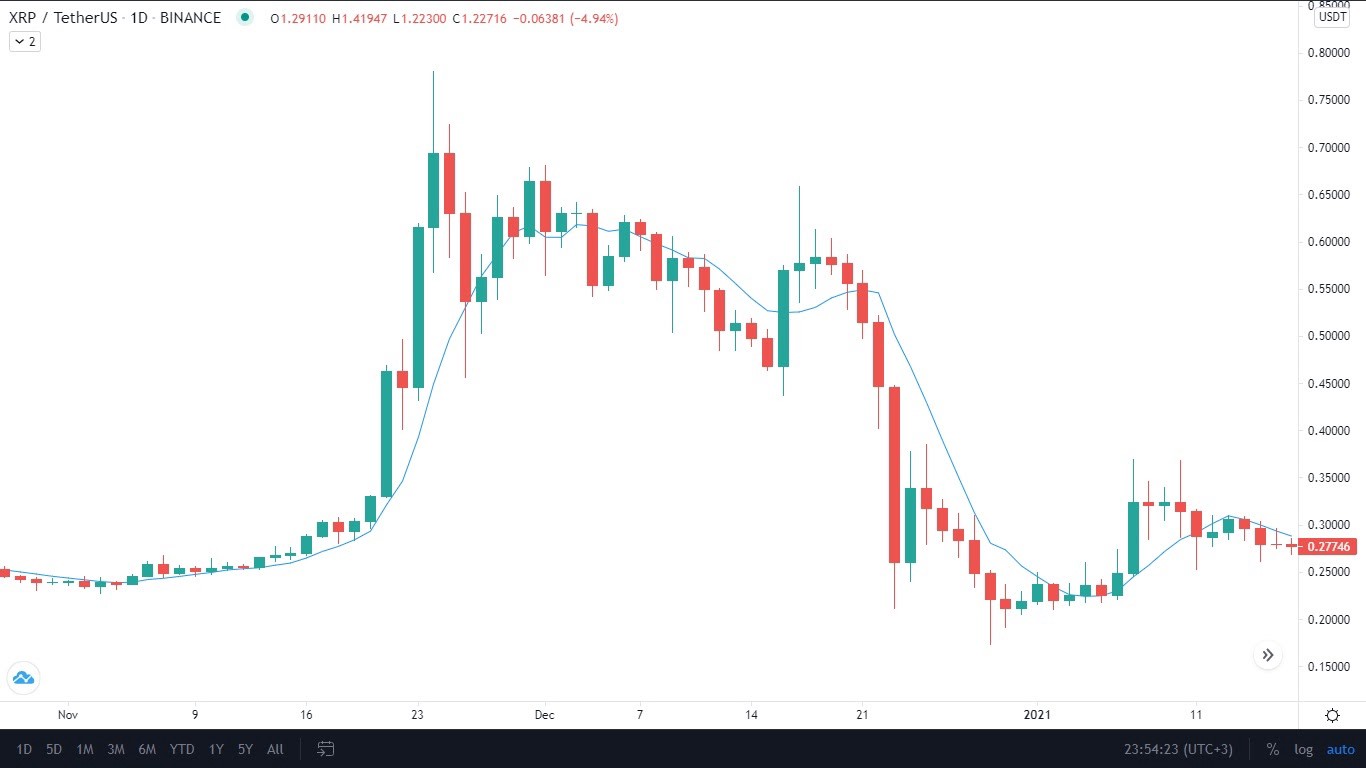
It is an indisputable fact that the sales made by XRP whales (users with large amounts of XRP) are effective in the declines. It can be thought the whales are market makers working with companies in the US and decided to sell after US companies suspended their XRP transactions.
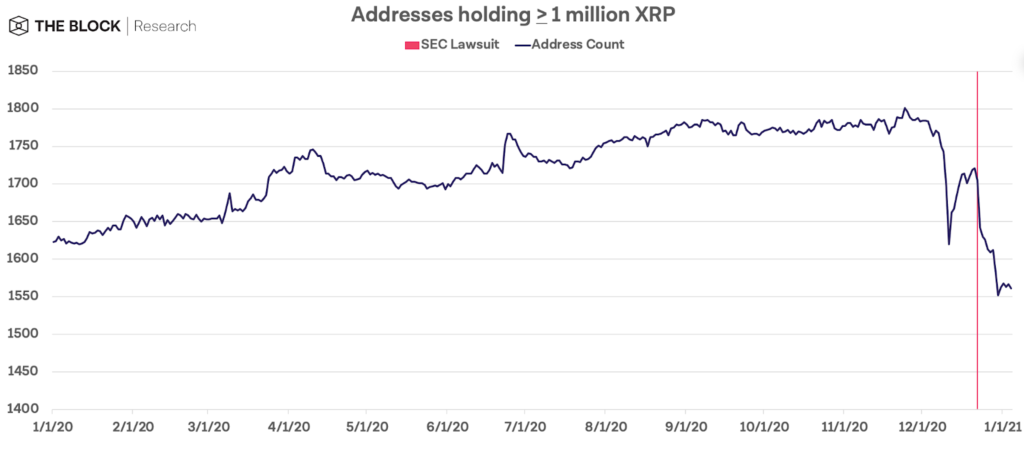
The chart above clearly shows the decrease in the number of wallets with a minimum of 1 million XRP in their wallets after the lawsuit. It is supported by this graph that the decline in the XRP price is carried out by the whales who made sales due to the unfavorable conditions brought by the lawsuit.
December 29, 2020
Ripple released a declaration on its site to explain the Ripple side of the issue, as the media constantly covered the SEC claims after the SEC filed a lawsuit. Important articles in the declaration are as follows:
● This lawsuit filed against Ripple is opened to the entire cryptocurrency sector-specific to Ripple.
(With this declaration, the regulatory uncertainty of cryptocurrencies has been expressed particularly in the USA.)
● Many XRP investors who had no links to Ripple were adversely affected by the lawsuit. (SEC’s main duty is to protect investors. As a result, Ripple used the significant drop in the price of XRP due to the lawsuit as a trump card in the declaration. Furthermore, it is significant to state that XRP investors have no connection with Ripple in terms of indicating the functions that XRP carries. Because XRP does not give its investors any rights or control powers over the Ripple company. This is an important argument in favor of Ripple that XRP is not a security.)
● Ripple will continue to serve its users in the USA.
(It can be considered that with this explanation, Ripple is both aiming to comfort the public and giving a message that it will remain loyal to the existing cooperation agreements.)
● The vast majority of XRP’s volume comes from outside the USA. The majority of Ripple’s customers are also outside the USA.
(In other words, although the headquarters of the company is in the USA, it has been stated that the income sources were outside the USA, and the suspension of XRP trade by the companies in the USA after the lawsuit will not seriously affect the company.)
January 1, 2021
Deaton Law Firm filed a petition with the Rhode Island District Court before a group of XRP investors it represents. The petition requested that the Supreme Court ruled that the XRPs under investigation in the lawsuit between the SEC and Ripple were XRPs offered for sale between 2013 and 2015 and that XRP trading after that date is not subject to the litigation. The Deaton law firm took this decision and tried to pave the way for investors holding XRP in order to sell their balances in the US market.
January 5, 2021
Following the SEC lawsuit, Tetragon, a UK-based firm that owns 1.5% of Ripple, requested the return of its Ripple shares and sued Ripple. Tetragon has demanded a refund of its investment by returning its $200 million worth of Series C shares, based on the contractual clauses signed with Ripple. In addition, a ban on spending Ripple on all cash and cash equivalent assets is requested until payment was made.
Following this lawsuit, Ripple confirmed that if XRP is defined as a security in the agreement with Tetragon, Ripple is obligated to repay the $200 million investment. However, Ripple stated that XRP had not yet been identified as security and the payment would not be made, as the lawsuit with the SEC is still ongoing. Ripple also accused Tetragon of taking advantage of the SEC’s lawsuit.
January 7, 2021
Ripple CEO Garlinghouse announced that the company is in an effort to drop the lawsuit by settling with the SEC and that they will continue this approach with the new SEC chief to be appointed by the Biden administration.
January 13, 2021
Japanese financial authority FCA, by answering questions from cryptocurrency media site The Block, officially stated that they saw XRP as an electronic currency, not a security. Considering that Ripple is also partnering with Japanese finance giant SBI Holding, it can be said that the company is strong in Japan.
Countries such as Japan, Switzerland, Singapore, and the UK are countries that classify XRP and have a clear understanding of regulation. For this reason, Ripple issued a statement just before the lawsuit is filed, stating that the company’s headquarters could be moved to countries where regulations are clear, such as England and Japan, due to regulatory uncertainty in the USA. The fact that this statement was published just before the lawsuit is filed created the possibility that Ripple may have heard of the lawsuit in advance.
January 29, 2021
Ripple sent 93-page advocacy to the court in response to the SEC’s accusations. The content of the advocacy was based on two main arguments.
1. It is stated that XRP is a means of payment and was used for money transfers, and it did not meet the requirements for defining XRP as a security, therefore it does not fall under the jurisdiction of the SEC.
2. Based on the freedom of information law, Ripple has requested that all documents of the SEC regarding BTC and ETH were handed over to them.
(In this way, Ripple aims to bring the drop the lawsuit by revealing the similarities of the criteria valid for BTC and ETH with XRP and ensuring that the SEC’s definition of “not a security” for BTC and ETH is also valid for XRP.)
February 18, 2021
In a new statement to the court, the SEC accused the company’s executives Garlinghouse and Larsen of making a profit by manipulating the XRP price in their interests. Ripple’s lawyers explained that these allegations are essentially based on whether or not XRP, which is the main subject of the lawsuit, is a security and that the allegations are not a new subject of development for the lawsuit.
February 22, 2021
Moneygram announced that it has suspended its collaboration with Ripple over XRP due to the SEC lawsuit. Moneygram started using XRP in international forex transfers in 2019 by making an agreement with Ripple. Ripple made a $50 million investment in Moneygram in return for this contract.
March 1, 2021
Rosen Law Firm sued Moneygram for misinforming its investors about XRP. The firm announced that investors who bought Moneygram shares between June 17, 2019, and February 22, 2021, could recover damages while demanding that they become involved in the lawsuit.
March 3, 2021
Ripple executives Garlinghouse and Larsen sent missives to the court separately through their lawyers and demanded that their accusations be dropped. In the content of the missives, it was stated that the lawsuit filed by the SEC had been entirely a regulatory lawsuit related to the classification of XRP and that Garlinghouse and Larsen sold XRP anonymously over the stock market, not directly to investors. Therefore, it is requested that the accusations be dropped, stating that Garlinghouse and Larsen could not mislead investors in any manner.
March 5, 2021
Tetragon’s lawsuit to get back its investments is rejected since the lawsuit between the SEC and Ripple has not yet been concluded and XRP has not been identified as a security.
March 8, 2021
Ripple declared that their cooperation with Moneygram is terminated by mutual agreement. In this way, the SEC’s lawsuit caused Ripple to lose one of its most trusted and prestigious partners in the US. After the trial started, Ripple announced more than 20 partnerships to make up for the loss of the Moneygram partnership and to reclaim its dwindling reputation as a result of the litigation.
March 11, 2021
In a letter to a group of banks, the SEC requested the bill of account of Garlinghouse and Larsen. Ripple’s lawyers demanded that this request be cancelled. In the petition of objection Ripple lawyers, it is stated the lawsuit did not contain any fraud accusations, Garlinghouse and Larsen are already cooperating with the court and have already submitted bank records of disputed transactions to the court, and the SEC’s request for detailed account documents went beyond the scope of the lawsuit.
March 12, 2021
Japanese financial giant SBI Holding announced that the company will distribute XRP to all investors with 100 or more shares. This move of SBI Holding, which is the current partner of Ripple, can be interpreted as a move towards continuing support for Ripple.
March 14, 2021
At the beginning of the article, we have mentioned Deaton Law Firm’s initiative on January 1, 2021. In response to this request, the SEC issued a declaration stating that New York is the competent court for the Ripple lawsuit. Deaton Law Firm officially applied to represent XRP investors and become a third party to the SEC-Ripple lawsuit on behalf of the 6,000 XRP investors that it represents. The reason given for the application was Ripple and its executives were interested in drop the accusitions against them and the company and that there was no party representing the interests of investors.
March 17, 2021
The request of Deaton Law Firm to intervene in the lawsuit is rejected. On the same dates, SEC sent a statement to the court with regard to why they are requesting bank records. The statement mentions that Garlinghouse and Larsen made $600 million in profit from XRP sales and how that money is spent should be reviewed by the SEC. Besides, according to the arguments of Garlinghouse and Larsen, their XRP sales are based on the fact that these sales are made without crime element, and according to the methods of spending 600 million USD by Garlinghouse and Larsen, both the accuracy of these arguments and whether the price of XRP is manipulated or not should be tested.
The accuracy of the arguments means that if Garlinghouse and Larsen did without criminalizing XRP sales, there should not be any money smuggling activities. If the SEC finds any trace of money smuggling, it will show that executives know that the income from XRP sales can be viewed as a criminal element.
March 22, 2021
The SEC refused to provide Ripple’s requested documents regarding BTC and ETH and applied to the court for the cancellation of this request. In the application, it is stated that the BTC and ETH cryptocurrencies are irrelevant to the lawsuit.
This comparison, which can be quite relevant due to the fact that XRP is one of the biggest cryptocurrencies such as BTC and ETH and has similar characteristics, has been described as irrelevant by the SEC, strengthening Ripple’s trump and giving rise to an idea that the SEC has a weakness.
On the same date, while examining the SEC’s arguments, the judge posed a question to SEC’s lawyers:
“Is it true that according to your arguments, everyone who sells XRP is partnering in the illegal securities sale?”
SEC lawyers said in response that only Ripple as the company and Ripple affiliates can sell XRP illegally. This response of the lawyers proved that there is no risk of exchanges in the USA to re-list and trade XRP created a positive atmosphere in the market.
March 24, 2021
After the SEC’s refusal to provide BTC and ETH-related documents, Ripple’s lawyers repeated their request, claiming that XRP is one of the market’s leading digital currencies such as BTC and ETH and that the SEC has already defined ‘not securities’ for BTC and ETH. The firm submitted the documents to the court proving that the documents are related to the lawsuit.
March 29, 2021
The court granted the motion, reconsidering for a second time Deaton Law Firm’s motion to intervene in the lawsuit for a second time, which it had previously denied. Deaton represented 6,000 investors at the time of the first application. On March 29, when the application was accepted, it represented more than 10 thousand investors.
By virtue of Deaton, the involvement of XRP investors in the lawsuit provides a new defence front in favor of Ripple, while the SEC will try to prove its claims against direct investors, whose primary task is to protect investors, is seen as a development that can change the process of the lawsuit
.
April 6, 2021
The court justified Ripple’s request and ordered the SEC to deliver all documents (excluding employees’ correspondence) to Ripple regarding BTC and ETH. With this development, there was an expectation that the lawsuit could end earlier than expected on behalf of Ripple.
April 9, 2021
The court denied SEC’s motion to access Garlinghouse’s and Larsen’s bank accounts because XRP was not related to their identification as securities.
We can say these decisions are taken on April 6 and 9 caused the lawsuit to turn in favor of Ripple, as it directly supported Ripple’s main defense.
April 19, 2021
A weekly $33 million worth of XRP inflows into XRP balances of digital asset management companies, according to Coinshares’ weekly report. This situation is significant in terms of showing that institutional investors are demanding XRP. The fact that the lawsuit turned in favor of Ripple can be shown as one of the biggest factors in the formation of this demand.
April 20, 2021
Ripple’s lawyers argued that the SEC’s move endangered Ripple’s cooperation and prestige outside the United States, claiming that the SEC violated federal laws and the Hague Convention, as the SEC requested information and documents regarding XRP from financial authorities abroad.
MOU refers to the SEC’s request for documents from foreign authorities (Memorandum of Understanding). MOU involves regulatory departments between countries to make information, documents and research from each other. In other words, this move of the SEC is not the first in history, however, this move has been publicly interpreted as the SEC’s making the lawsuit bad.
The real significance of this move is that it ends the uncertainty about whether Gary Gensler, who has just taken over the SEC, will decide to withdraw from the Ripple lawsuit or not. It is obvious the new SEC Chairman is in favor of the continuation of the lawsuit.
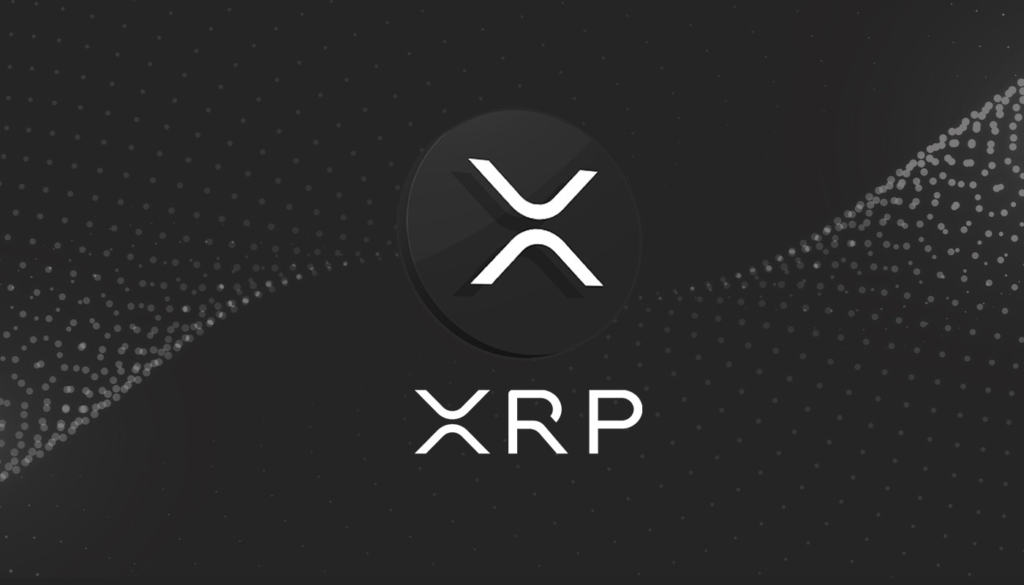
Conclusion
The lawsuit has not yet been concluded, although it turned in favor of Ripple, particularly after court decisions in early April. It is apparent that the new SEC Chairman, Gary Gensler, intends to pursue the lawsuit. As a result, it should come as no surprise if the SEC makes new moves in the coming days. The lawsuit to end earlier than expected may come after Ripple’s review of the SEC’s documents on BTC and ETH. Considering that the personal accusations of Garlinghouse and Larsen are also the subject of litigation, as a result of potential evidence Ripple can obtain from BTC and ETH documents, the agreement common in the US legal practice can ensure that the lawsuit is settled with minimum damage to the reputation of both parties.
The conclusion of the case through a settlement or with the charges dropped directly can serve as a precedent that can end the regulatory uncertainty of all cryptocurrencies in the US, especially for XRP. Therefore, as the lawsuit goes on, the significance of the lawsuit for the cryptocurrency market increases with the new arguments that emerge.
If the SEC wins the lawsuit, it can be thought that the uncertainty of the regulations will decrease as a precedent. However, in this case, it can be predicted that the decision to set a precedent will not be as desired by the cryptocurrency community. In this case, the future of cryptocurrencies in the US may remain uncertain.
Written By: Berkay Aybey
The opinions and comments expressed here belong to BV Crypto. BV Crypto cannot be held responsible for any financial transactions made on the basis of this post. Every investment and trading move involves risk. When making your decision, you should do your own research.